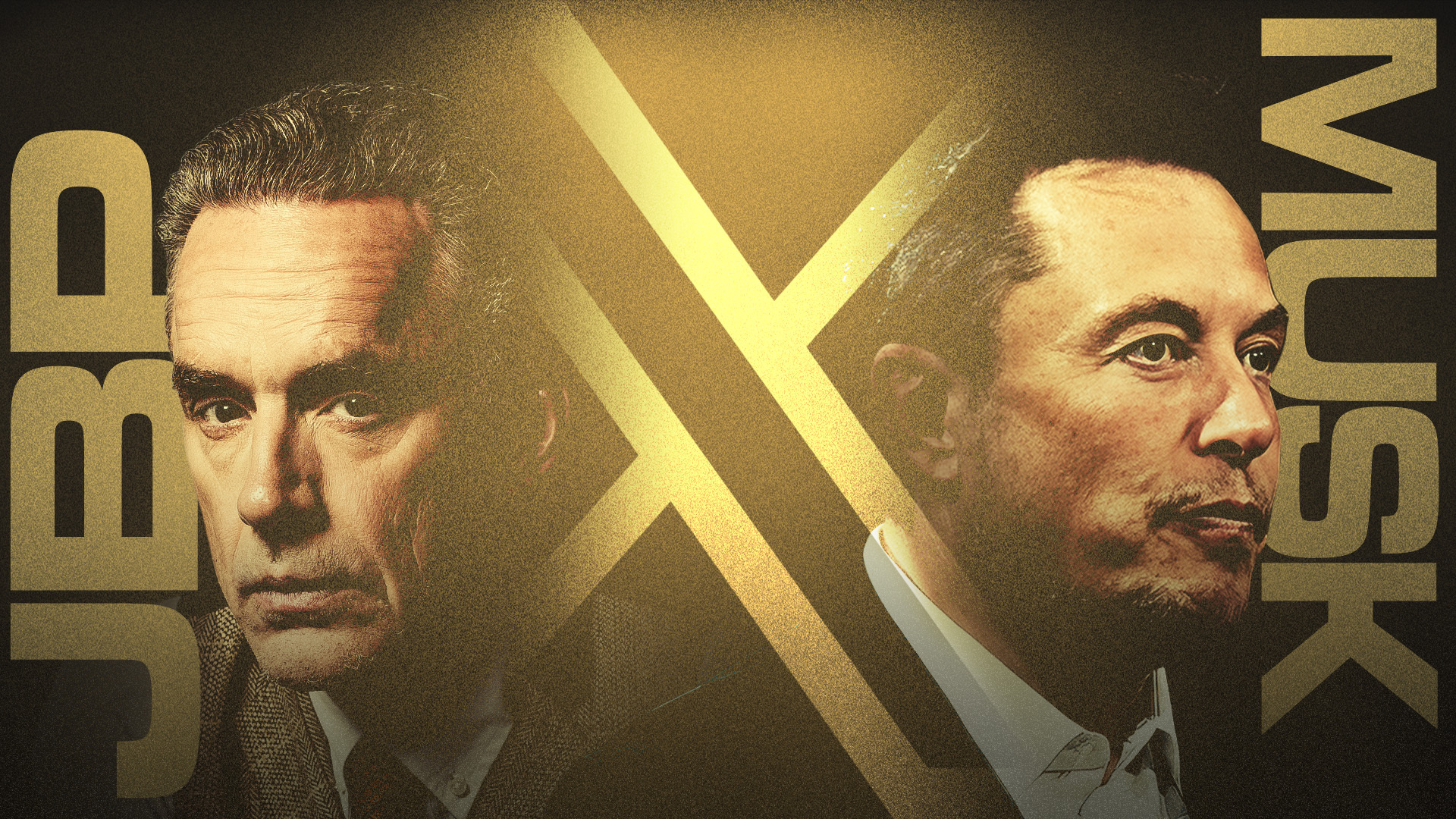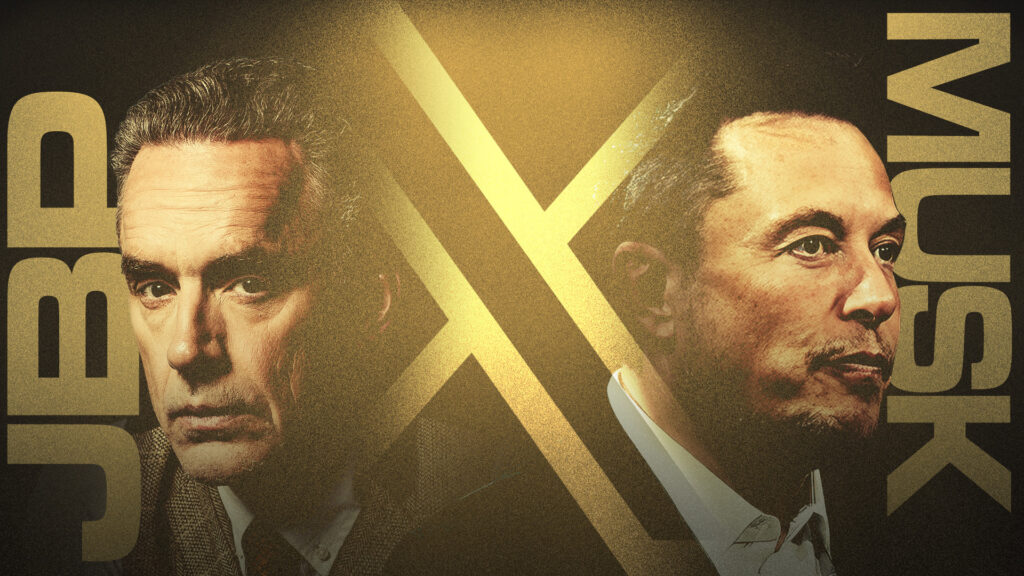The Foundation Of Elon Musk’s Philosophy
The following is a transcript excerpt from Dr. Jordan B. Peterson’s live interview with Elon Musk. In this portion of their discussion, Musk describes when he began asking questions about the meaning of life, what led him to the resolution of his existential crisis, how he developed such a curious nature, and why he is ...

The following is a transcript excerpt from Dr. Jordan B. Peterson’s live interview with Elon Musk. In this portion of their discussion, Musk describes when he began asking questions about the meaning of life, what led him to the resolution of his existential crisis, how he developed such a curious nature, and why he is motivated to continue learning. Dr. Peterson’s extensive catalog is available on DailyWire+.
Start time: 00:38:37
* * *
Jordan B. Peterson: I’m very curious about your intuition. How did you cotton onto the fact that that antagonistic attitude towards birth that’s embedded in our culture now was something that should be called out and that was pathological?
Elon Musk: I should perhaps go back to what is the foundation of my philosophy because that, I think, helps build up to explain my actions. When I was, I don’t know, about 11- or 12-years-old, I had somewhat of an existential crisis because there just didn’t seem to be any meaning in the world, no meaning to life. So I actually read, tried to read, all the religious texts.
Peterson: At that age?
Musk: Yes, I was a voracious reader as a kid. So, I obviously read the Bible. I read the Quran, the Torah, a bit on the Hindu side, just trying to understand all these things. Obviously as a 12-year-old, you’re not really going to understand these things super well.
Peterson: Well, you understood it well enough to have an existential crisis when you were 11 or 12. That’s a start.
Musk: I was just trying to figure out, does anyone have an answer that makes sense? And then I started getting into the philosophy books, and I read quite a bit of Schopenhauer and Nietzsche, which is quite depressing to read as a kid. That’s depressing as an adult. But none of them really seemed to have answers that resonated, at least to me. But then I read Douglas Adams’ “The Hitchhiker’s Guide to the Galaxy,” which is really a book on philosophy disguised as humor. And the point that Adams tries to make there is that we don’t actually know all the answers, obviously. In fact, we don’t even know what the right questions are to ask. That’s where he has this, if you read the book, the Earth is actually a giant computer to understand the answer to the question, “What is the meaning of life?” and comes up with the answer 42. And what does that mean? It says, oh, you actually don’t understand; the thing [is], that’s going to take a computer far more powerful than Earth to understand what question to ask. That’s simply the wrong question.
Peterson: So was that the key realization? That the question was the thing?
Musk: I would say that that was a fundamental turning point.
Peterson: That’s very interesting because one of the things that you see constantly portrayed in Redemptive Hero myths across the world is that the adventure is the thing and the search is the thing, rather than there being a final answer as absurd as 42 might be. The conclusive answer is something like deep engagement in the process. So I’ll give you an example of that. The Sermon on the Mount is a very detailed set of instructions, so there’s three parts to it. The first is: Aim at the highest thing that you can possibly conceive of and keep modifying that so your aim gets better. That’s number one. Number two is: Make the presumption that other people have the same intrinsic value as you do.
Musk: Well, we have to be careful about that one.
Peterson: Ok, let’s discuss that. But it’s — what would you say — it’s a recognition of the universalist value of everyone who’s made in the image of God. It’s something like that. But the third thing is, once you do those two things, you can concentrate on the moment. And that seems to be, even technically, you can think about this as neuropsychological. If you’re looking for meaning, meaning is a form of incentive reward. An incentive reward is dopaminergic mediated. And incentive reward occurs in relationship to advancement toward a goal, which is a form of entropy minimization, as it turns out, according to Karl Friston, who knows this sort of thing.
Musk: Entropy is the ultimate boss battle.
WATCH: Dr. Jordan B. Peterson’s interview with Elon Musk on DailyWire+
Peterson: Yes, right. Well, negative emotion signifies the emergence of entropy and positive emotion, on the dopaminergic side, signals its reduction. But there’s something that’s more complex there, because the higher the goal that you’re trying to attain, the more intrinsic value each step toward it comprises. And that’s neuro-psychologically accurate. So part of the wisdom of the Sermon on the Mount is that if you posit the highest imaginable goal, then any step toward it that captures your attention is also deeply meaningful. That’s an answer to what the meaning is — a process — rather than, say, something like 42. It seems to me that you were intimating that your discovery through Adams, that the question was the thing, was key to the resolution of your existential crisis.
Musk: That’s correct.
Peterson: Ok, so that’s part of the reason that you’re motivated to, say, build Grok 3 and look deeper.
Musk: To understand. To understand the universe.
Peterson: How old were you when you figured out that the question—?
Musk: 13 or something.
Peterson: What did that do to you?
Musk: Well, I was a lot happier after that because now it’s like, ok, well, I’m just going to accept that we are ignorant of a great many things, and we wish to be less ignorant. And anything we can do that will improve our understanding of the universe and make us less ignorant and have a deeper understanding of the universe, and even more questions to ask about the answer that is the universe, which is, I think, Adams’ central point, is good.
Peterson: And that was good enough to resolve that crisis?
Musk: It was. It was for me at least. And so, is this a religion? I don’t know. Maybe it is, but I think it’s a good one. I would call it the Religion of Curiosity.
* * *
To continue, listen to or watch Dr. Peterson’s interview with Elon Musk on DailyWire+.
Dr. Jordan B. Peterson is a clinical psychologist and professor emeritus at the University of Toronto. From 1993 to 1998 he served as assistant and then associate professor of psychology at Harvard. He is the international bestselling author of “Maps of Meaning,” “12 Rules For Life,” and “Beyond Order.” You can now listen to or watch his popular lectures on DailyWire+.
Be sure to PRE-ORDER Dr. Peterson’s newest book: “We Who Wrestle with God” (Portfolio/Penguin. November 19, 2024.)
Originally Published at Daily Wire, World Net Daily, or The Blaze
What's Your Reaction?

































































































